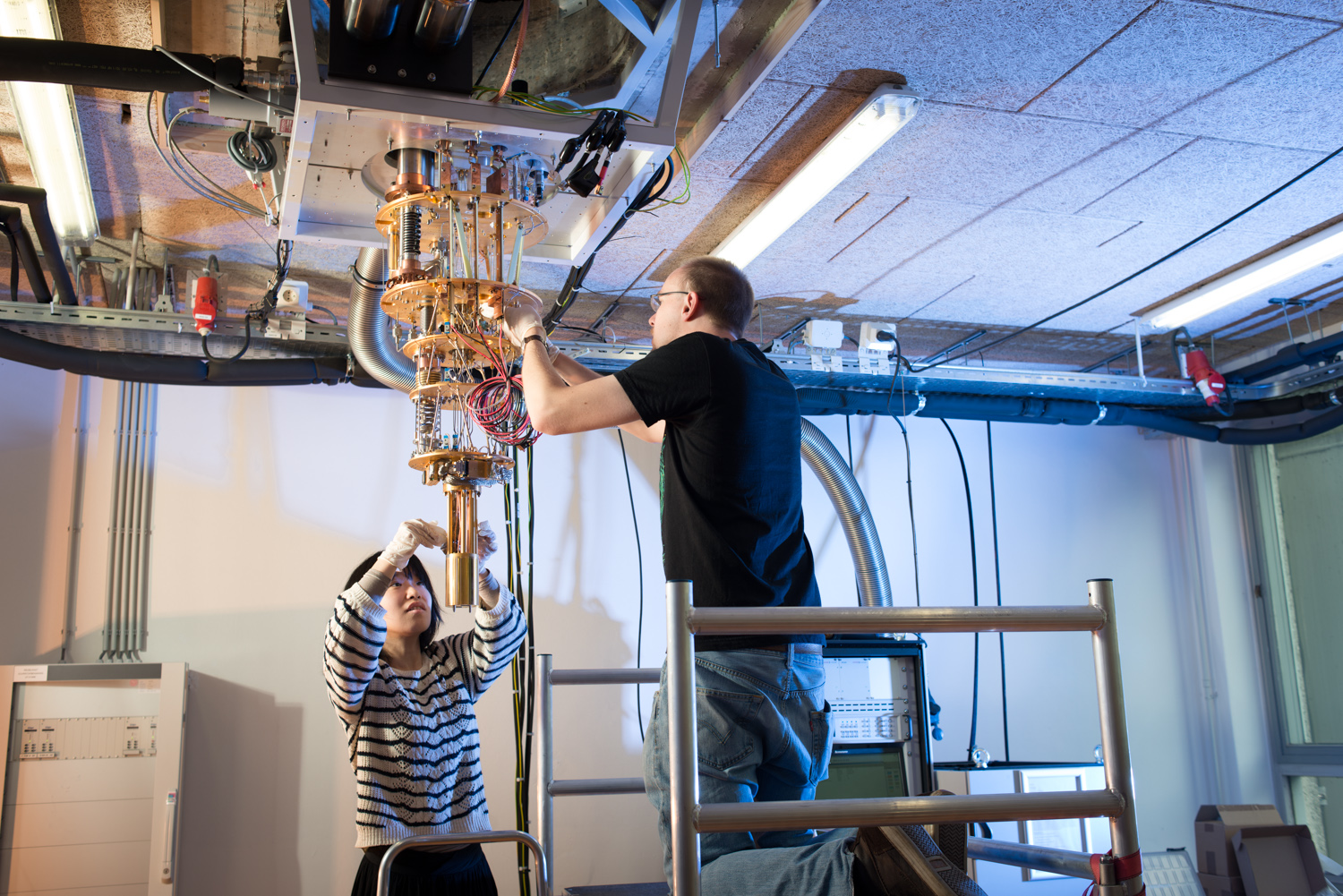The EU awarded QUTech EUR 10 million to develop a blueprint for a quantum internet. The grant is part of a EUR 1 billion programme that should lead to a quantum revolution.
With the funding of the EU Quantum Flagship, the Quantum Internet Alliance wants to establish the first multi-node quantum processor networks. (Photo: QUTech)
The EU wants to position Europe at the forefront of ‘a quantum revolution’, and so over the next 10 years, as part of a EUR 1 billion flagship programme, it will fund over 5,000 of Europe’s leading quantum technologies researchers. This week, the first 20 projects received funding, amongst which the development of a blueprint for a future quantum internet by the Quantum Internet Alliance, a collaboration led by QUTech.
A quantum internet uses an intriguing quantum phenomenon to connect different nodes in a network together. In a normal network connection, nodes exchange information by sending electrons or photons hence and forth, making them vulnerable for eavesdropping.
In a quantum network, the nodes are connected by ‘entanglements’, where a change in the state of one node instantly affects the others without exchanging information. This allows for inherently secure communication networks. A guideline to the development of this type of network was recently published in Science.
‘We are very close to building the first quantum networks’
“We are very close to building the first quantum networks with three or four nodes. This grant allows us to speed up and keep Europe at the forefront of this fascinating field of research and technology development,” says Prof. Stephanie Wehner in a TU Delft press release. Wehner is coordinator of the Quantum Internet Alliance and Antoni van Leeuwenhoek Professor in quantum information at TU Delft.
“Importantly, this project establishes a team of computer science, engineering and physics researchers as well as high tech industry across Europe because we can only be successful if we work together. By building quantum networks, we want European research groups and high-tech industry to be at the forefront of what could be a completely new field of technology.” The Quantum Internet Alliance consists of 12 leading research groups at universities from eight European countries, working in close cooperation with over 20 companies and institutes.
Achieving a quantum internet requires focused effort. For instance, entanglement should be created much faster than it gets lost. With the funding of the EU Quantum Flagship, the Quantum Internet Alliance will establish the first multi-node quantum processor networks, lay the groundwork for quantum repeater technology to allow quantum bits to travel long distances, and develop the first software and network stack for allowing scalable control and software development to make a quantum internet useful.
Also read: The quantum computer exists, and it doesn’t in Delft Outlook, TU Delft’s alumni magazine (pdf)
Do you have a question or comment about this article?
tomas.vandijk@tudelft.nl


Comments are closed.